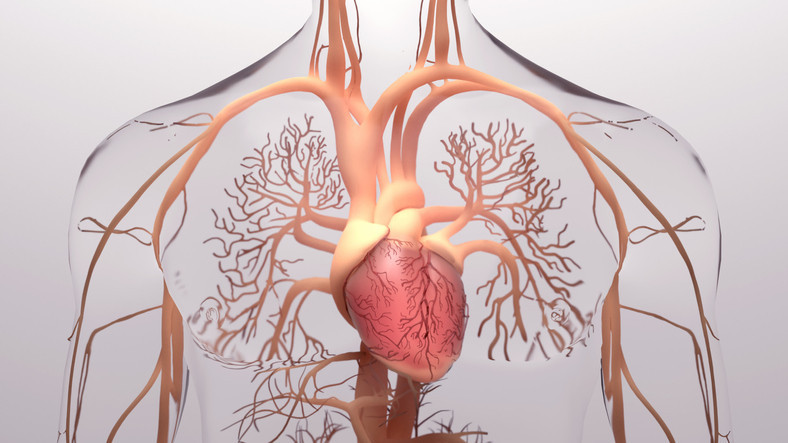
New thinking about plaque in arteries that feed the brain

Want to prevent shifting teeth? Maybe you need retainers

New evidence that polyphenol-rich foods help the heart

What you need to know about the new dietary guidelines

Food that’s healthier for people and planet can be cheaper, too

What are somatic workouts?

How to curb your stress eating

8 simple ways to reduce ultra-processed foods in your diet

How to spot Parkinson’s disease symptoms

Heart failure symptoms in women: How they’re different
Cholesterol and lipids Archive
Articles
Women's heart attacks more strongly connected to different risk factors than men's
A 2022 study found that women under 55 experiencing heart attacks have different leading risk factors than men in this age group. For women, diabetes, depression, high blood pressure, and low household income are strong risk factors for heart attack.
Heart health guidelines get updated
The American Heart Association recently revised its checklist for achieving optimal heart health. Adequate sleep was added, and updates were made to previous recommendations for diet, cholesterol and blood sugar measurements, and nicotine exposure.
The lowdown on "good" cholesterol
Long touted as beneficial for heart health, high-density lipoprotein (HDL) is more complicated than experts once thought. Some forms of HDL grab cholesterol from the bloodstream and other tissues and transport it to the liver, where it's recycled or disposed, but other types are neutral or perform the opposite action. Most drugs that raise HDL don't seem to prevent heart disease, and very high HDL levels may even be linked to a higher risk.
Medications to lower triglycerides
People with high triglyceride levels may be candidates for icosapent ethyl (Vascepa), a drug made from highly purified fish oil. It lowers triglycerides and, when taken with a statin, lowers the risk of heart attack, stroke, and death from cardiac causes.
Hybrid exercise training
Hybrid exercise training combines heart-pumping aerobic action with muscle-strengthening moves in the same exercise session. The strategy has the advantage of meeting two key goals of the federal Physical Activity Guidelines in one fell swoop. And it also appears to be one of the best—and most time-efficient—ways for people who are overweight to lower their risk of cardiovascular-related risk factors. Strong muscles boost a person's basal metabolic rate—the amount of energy the body needs to keep working during rest. That improves weight-loss efforts by ramping up the number of calories burned.
How good is your cardiometabolic health — and what is that, anyway?
An analysis shows less than 7% of adults in the US meet the criteria for optimal cardiometabolic health. Taking small steps to help control and improve key risk factors can reduce the odds of a heart attack or stroke.
What's driving heart attacks in younger adults?
Seven factors appear to account for most first heart attacks in people ages 55 and younger: diabetes, depression, high blood pressure, current smoking, family history of early heart attack, low household income, and high cholesterol.
What are the different types of body fat?
Two important types of fat in the body are white fat and brown fat. White fat is located in the chest, abdomen, and upper legs; too much of it constitutes obesity. Its function is to provide insulation against the cold, store fats derived from food, and continually release small amounts of the fats to be converted into energy. Brown fat is found in small amounts in the neck, shoulders, chest, and abdomen. Its main function is to burn the fat it stores, creating heat that keeps the body warm.
Nordic diet may improve cholesterol, blood sugar levels
A traditional Nordic diet featuring whole grains, berries, canola oil, fish, and low-fat dairy may improve heart-related risk factors, even if people following the diet don't lose weight.
Want to try veganism? Here's how to get started
Some people decide to adopt a vegan diet because of concerns about the health effects of eating animal products; for others it's more about concern for animal welfare and the environment. Regardless of the motivation, those who want to make this change should anticipate potential pitfalls and be aware of issues specific to vegan eating.

New thinking about plaque in arteries that feed the brain

Want to prevent shifting teeth? Maybe you need retainers

New evidence that polyphenol-rich foods help the heart

What you need to know about the new dietary guidelines

Food that’s healthier for people and planet can be cheaper, too

What are somatic workouts?

How to curb your stress eating

8 simple ways to reduce ultra-processed foods in your diet

How to spot Parkinson’s disease symptoms

Heart failure symptoms in women: How they’re different
Free Healthbeat Signup
Get the latest in health news delivered to your inbox!
Sign Up











